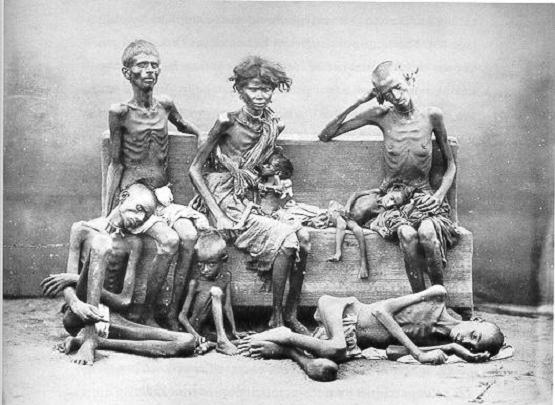
Now as He sat on the Mount of Olives, the disciples came to Him privately, saying, “...what will be the sign of Your coming, and of the end of the age?” And Jesus answered and said to them: “Take heed that no one deceives you. For many will come in My name, saying, ‘I am the Christ,’ and will deceive many. And you will hear of wars and rumours of wars. See that you are not troubled; for all these things must come to pass, but the end is not yet. For nation will rise against nation, and kingdom against kingdom. And there will be famines, pestilences, and earthquakes in various places.
Matthew 24:3-7
BBC News online: 23 February 2006:-
UN warns world on Africa drought
Images like this one in Niger mobilise donors, but often too late The world is in danger of allowing a drought in East Africa to become a humanitarian catastrophe, the UN warns.
The UN special envoy to the Horn of Africa, Kjell Bondevik, says a disaster can be avoided if funding comes "in a matter of weeks... not months".
Around 11 million people are in serious danger in Kenya, Ethiopia, Eritrea, Somalia and Djibouti, the UN estimates.
The World Food Programme, leading the aid effort, says it has only a third of what it needs to close the shortfall.
Donors had committed just $186m (£106m) of the $574m (£327m) needed, the WFP says.
"I urge donors countries to pledge more and pay. Not only to pledge, but to pay," Mr Bondevik said on a tour to see first-hand the situation in Kenya.
Past disasters
It follows past food crises in Niger and other parts of Africa where, by the time images of dying children have prodded the international into action, it has been too late, says the BBC's Peter Greste in Nairobi.
Mr Bondevik said global climate change was the root cause for the failure of the past two rainy seasons, and it was incumbent on the global community to come to the aid of those at risk.
"I'm afraid that we will go from a crisis to a disaster to a catastrophe if help is not provided in time," he said.
His comments were echoed by UK charity Oxfam, which said the response so far from rich donor countries had been "dwarfed by the immediate need".
The crisis is so bad in some parts of northern Kenya that families are being forced to eat insects, wild berries and squirrels to stay alive, Oxfam has found.
"Donors need to frontload their efforts so that action can be taken now; money given in three months will be too late for many," Paul Smith-Lomas, head of Oxfam in East Africa, said.
Yahoo News, 4th December 2006:-
Green light for nuclear replacement
Tony Blair has given the green light for a new generation of nuclear missile submarines, warning that it would be "unwise and dangerous" for Britain to give up its nuclear arsenal.
The Prime Minister told MPs the new submarine fleet would carry the Trident nuclear missile deterrent into the middle of the 21st century at an estimated cost of £15-20 billion.
In a concession to critics on the Labour benches, Mr Blair announced that the UK's stockpile of nuclear warheads would be cut by a fifth.
No comments:
Post a Comment